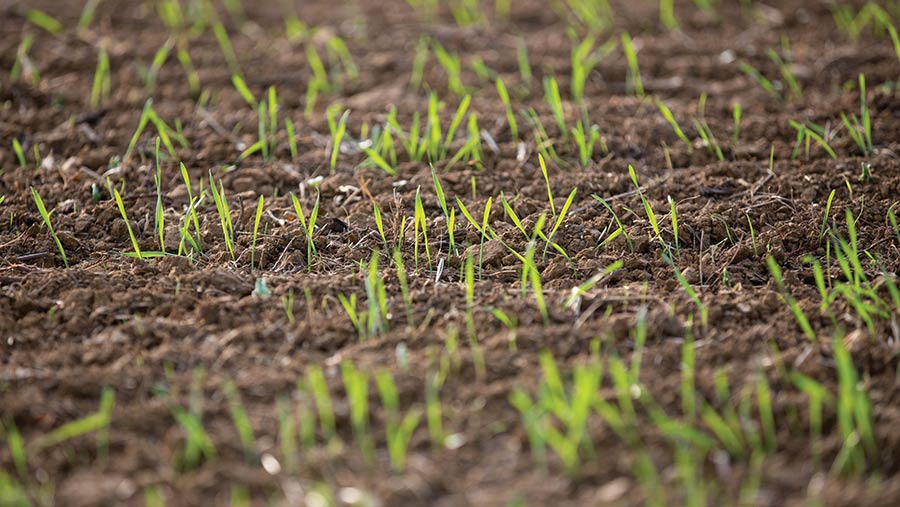Wheat markets fall to five-month low with prices near £170/t
 © Tim Scrivener
© Tim Scrivener Feed wheat prices have slipped to their lowest level since harvest, with few signs of any uplift in the immediate future.
Spot values collected by Farmers Weekly stood at £171.36/t ex-farm on Wednesday 24 January, with UK wheat struggling to compete on export markets and unfavourable exchange rates adding to the downward pressure.
See also: Group of merchants team up to oppose digital grain passports
If low grain prices persist, traders say the new Sustainable Farming Incentive for growers in England may become increasingly attractive, which could result in more land being taken out of food production.
Glenn Mason, head of grain marketing at Openfield, said not a lot of crop had been coming to the market, with a lack of farmer selling at current prices.
He suggested the adverse winter weather may have had a bigger effect on plantings than Defra had estimated and this could potentially lead to lower stocks later in the year.
Global picture
Looking at global markets, Mr Mason said many importing countries had been buying wheat recently, including Morocco, Tunisia, China and Saudi Arabia, but prices remained low.
He added that the Russian export pace had started to drop and EU wheat was now able to compete for price with Russian product.
With both at a similar price point, the EU wheat is likely to appeal to hauliers wishing to avoid moving vessels through the Black Sea.
Some merchants have reported that disruption near the Suez Canal has also been having an effect on shipping routes.
A bearish global outlook by the US Department of Agriculture as part of its latest World Agriculture Supply and Demand Estimates report has also continued to hold back any potential price gains.
This led to both Paris and London wheat futures dropping back for the May 2024 contracts in the past week. UK feed wheat futures opened at £183.35/t on 24 January, having fallen by £13.70/t since the start of the year.
Spring seed shortages
A shortage of seed available for spring drilling is becoming a major concern, with growers struggling to find merchants with seeds left in stock.
The wet weather and storms throughout January have damaged winter-planted crops in some key growing areas, and even more growers will be reliant on spring seed.
Results from an NFU survey found that 70% of growers who responded had not been able to complete drilling of their planned cropping area.
It also found more than 60% of growers did not have farm-saved seed available to use from the 2023 harvest, and less than 40% of respondents were able to secure the required volume of certified seed needed for spring cropping.
The NFU is pushing for an urgent resolution to shortages and has met with the Agricultural Industries Confederation (AIC) and the British Society of Plant Breeders to try to find a solution.
AIC head of seed Rose Riby said: “The extremely poor winter weather has been a significant challenge for growers, which is why the certified seed sector is working tirelessly to meet exceptional demand for spring seed and deliver for their farming customers.
“This is a developing picture with approximately half of all seed still to be processed, meaning final quantities for spring 2024 are as yet unconfirmed. Seed availability continues to be monitored closely.”
The NFU also enquired with Defra to determine whether rules could be relaxed on trading grain as seed between farms. However, Defra advised this would not be possible in the short term.
